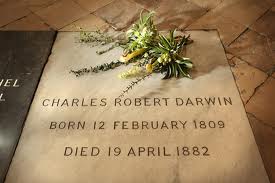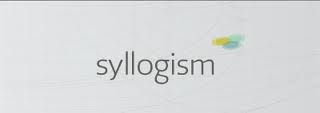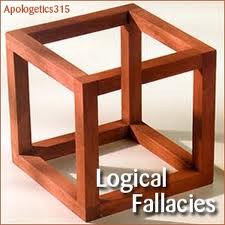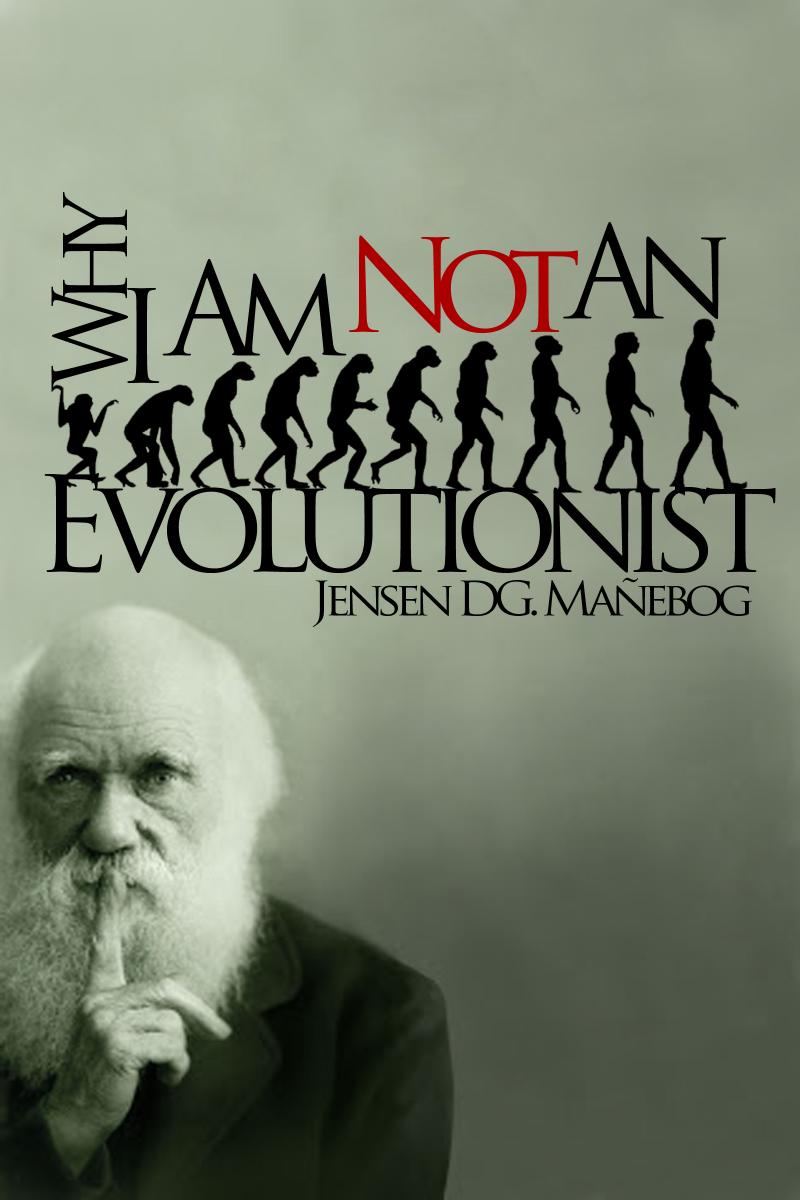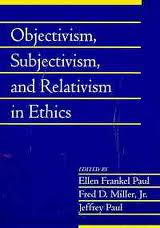OurHappySchool.com Featured Articles, Lectures, and e-Learning Materials
The following are the most visited and read articles and lectures and the most used eLearning materilas (reviewers, fun quiz games, etc.) in OurHappySchool.com.
UNIT I:
Rizal’s Life, Travels, and Adventures

Ads By Jotzey
WEEK 1
(*Fun quiz games are teacher-friendly e-learning quizzes which students find enjoyable. They automatically check & score students' performance.)
(a biographical sketch of the hero's life)
WEEK 2-3
In Biñan and Manila
In Europe
Grand Europe Tour
First homecoming
Second Travel Abroad
Sail to the West
In Great Britain
In France
In Belgium
In Madrid
In Biarritz, Paris, and Brussels
In Ghent
In Hong Kong and Sandakan
Second homecoming
WEEK 4
Daily life as an exile
Rizal and the Jesuits
Achievements in Dapitan
As a scientist and philologist
Spies and secret emissary
Visited by loved ones
Goodbye Dapitan
 WEEK 5-6
WEEK 5-6
In Manila
Going to Spain
Last homecoming
The rat in the kangaroo court
Rizal’s last 25 hours
WEEK 7
PRELIM EXAM
UNIT II: Rizal’s Family
WEEK 8
Calamba—the Birthplace of the hero
Don Francisco Mercado
Don Francisco’s influence to Rizal
Rizal’s love for his father
WEEK 9-10
The Rizal Home
Teodora Alonso
Doña Teodora‘s ancestry
Lolay and the young Rizal
The story of the moth
Against Rizal’s further education
Rizal’s Tio Jose Alberto
Doña Teodora’s imprisonments
Teodora’s long walks
Jose’s love for his mother
Mother and son in Dapitan
Doña Teodora’s share of martyrdom
 WEEK 11
WEEK 11
The Surname Rizal
Paciano’s Profile
Paciano, Burgos, and Gomburza
Paciano and the Spanish authorities
The Calamba Agrarian Trouble
Paciano as Calamba leader
Being Jose’s second father
The Revolutionary Paciano
Living a quiet life
WEEK 12-13
The Rizal Sisters and Some Family ‘Secrets’
UNIT III: Rizal’s Accomplishments
Education in Calamba
Education in Biñan
Education in Manila
Education in Europe
 WEEK 15-16
WEEK 15-16
Jose Rizal’s Novels
MIDTERM EXAMINATION
WEEK 17
Further Readings:
WEEK 18
Jose Rizal’s Collaborations with other Heroes
Further Readings:
UNIT IV: Jose Rizal’s Lovelife
WEEK 19
BONUS:
FINAL EXAMINATION
Related Articles/Entries:
I. SPECIFIC OBJECTIVES:
To state the importance of Logic in communication and in man’s being social
II. TOPICS/SUBJECT MATTER:
The importance of Logic and critical thinking; The importance og Logic in Communication’; ‘Language is Logic’; Logic in good usage; The 2 kinds of reasoning; Validity & Probability.
III. READINGS:
Internet articles:
site: www.OurHappySchool.com (*the articles can also be found by typing their title in the site’s own search engine)
IV. SUGGESTED ACTIVITIES:
A. Review of the last topic; Discussion of the prescribed reading
B. Assignment for next topic: Read the prescribed lecture/s for the next lesson; In the comment section below the online lecture/s, state why the topic is important (2-3 sentences; to be checked by the Asst. Monitor/Prof.); Bring a copy of the lecture/s in class.
V. EVALUATION: (Professor’s discretion)
WEEK 2
I. SPECIFIC OBJECTIVES:
To define Philosophy; to define Logic; to state the importance of studying Philosophy and Logic; to understand the different types of knowledge claims; to internalize the principle of healthy skepticism which is to become everyone’s epistemic responsibility; to distinguish the secular from divine knowledge; and to give prime importance to the true knowledge being taught by the Holy Scriptures.
II. TOPICS/SUBJECT MATTER:
PHILOSOPHY & LOGIC: A BACKGROUND: Definition, Division, Method, Object and Goal of, and Misconceptions about Philosophy; Definition, Kinds, Division, & Method of Logic; The Secular & Divine Knowledge
III. READING/S:
&
IV. SUGGESTED ACTIVITIES:
A. Review of the last topic; Discussion of the prescribed reading
B. Assignment for next topic: Read in the site the Reading for the next Lesson. Accomplish the instructions under 'Activities'. Bring to class a printed copy of the lecture and the 2 readings for 'suggested activity' for Week 3 (see below).
V. EVALUATION: (Professor’s discretion)
WEEK 3
I. SPECIFIC OBJECTIVES:
To define, differentiate, and relate concept, idea, word, and term; to enumerate the various kinds of terms; to distinguish connotation and denotation; to identify the suppositions of terms in propositions
II. TOPICS/SUBJECT MATTER:
CONCEPT, IDEA, WORD, AND TERM; Intension (Comprehension) and Extension of terms; Kinds of terms (A. According to quantity/extension, B. According to quality, C. According to Origin, D. According to the nature of referents, E. According to definiteness of meaning, F. According to relation); Supposition of terms
III. READING/S:
IV. ACTIVITIES: (Professor’s discretion)
B. Assignment for next topic: Read in the site the Reading for the next Lesson. Accomplish the instructions under 'Activities'. Bring to class a printed copy of the lecture.
V. EVALUATION: (Professor’s discretion)
WEEK 4
I. SPECIFIC OBJECTIVES:
To state what a definition is and its importance; to enumerate the several types of definitions; to identify the rules of good definition
II. TOPICS/SUBJECT MATTER:
DEFINITION: What Definition is; The various types of definition; The rules of good connotative (real) definition
III. READING/S:
IV. SUGGESTED ACTIVITIES:
A. Review of the last topic; Discussion of the prescribed reading
B. Assignment for next topic: Read in the site the reading for the next Lesson; In the comment section below the lecture, state why the lecture is important (2-3 sentences; to be checked by the Asst. Monitor/Prof.); Bring a printed copy of the lecture in class.
V. EVALUATION: (Professor’s discretion)
WEEK 5
 I. SPECIFIC OBJECTIVES:
I. SPECIFIC OBJECTIVES:
To identify the two general types of Division; To Distinguish Division from Classification; To state the importance of Classification; To identify the Golden Rules of Classification
II. TOPICS/SUBJECT MATTER:
DIVISION & CLASSIFICATION: Types of Division; Rules of Division; Types of Classification; Importance of Classification; Rules of Classification
III. READING/S:
IV. SUGGESTED ACTIVITIES:
A. Review of the last topic; Discussion of the prescribed reading
B. Assignment for next topic: Read in the site the Reading for the next Lesson. Accomplish the instructions under 'Activities'. Bring to class a printed copy of the lecture.
V. EVALUATION: (Professor’s discretion)
WEEK 6
I. SPECIFIC OBJECTIVES:
To determine how judgment is made; To distinguish judgment from proposition; To distinguish a proposition from a sentence; To introduce the three basic types of propositions
II. TOPICS/SUBJECT MATTER:
JUDGMENT, PROPOSITION (STATEMENT), and SENTENCE: Truth and Falsity; Judgment and Proposition; Proposition (Statement) and Sentences
III. READING/S:
IV. SUGGESTED ACTIVITIES:
A. Review of the last topic; Discussion of the prescribed reading
B. Assignment for next topic: Read in the site the Reading for the next Lesson. Accomplish the instructions under 'Activities'. Bring to class a printed copy of the lecture.
V. EVALUATION:
WEEK 7
I. SPECIFIC OBJECTIVES:
To introduce the logical structure of a categorical proposition; To identify the quality and quantity of categorical propositions; To identify the kinds of categorical propositions according to quantity; To enumerate the kinds of categorical propositions according to quality; To name the steps and guidelines in transforming ordinary discourse statements into standard form
II. TOPICS/SUBJECT MATTER:
CATEGORICAL PROPOSITION: Quantity of Categorical Statements; Quality of Categorical Statements; The Standard Form of Categorical Propositions; Reduction to the Logical Structure; Steps in transforming ordinary discourse statements into standard form; Some guidelines in reducing ordinary statements to the standard categorical form
III. READING/S:
IV. SUGGESTED ACTIVITIES:
A. Review of the last topic; Discussion of the prescribed reading
B. Assignment for next topic: Read the Reading for the next Lesson. Bring to class a copy of the lecture.
V. EVALUATION: (Professor’s discretion)
WEEK 8
I. SPECIFIC OBJECTIVES:
To distinguish hypothetical proposition from modal proposition; To identify the three kinds of hypothetical proposition; To state the three kinds of hypothetical proposition
II. TOPICS/SUBJECT MATTER:
MODAL & HYPOTHETICAL PROPOSITIONS: Necessary, Contingent, Possible, and Impossible propositions; Conditional, Disjunctive, and Conjunctive propositions
III. READING/S:
Textbook: Santiago, pp. 88-89; 96-99
IV. SUGGESTED ACTIVITIES:
A. Review of the last topic; Discussion of the prescribed reading
B. Assignment for next topic: Read in the site the 2 Readings for the next Lesson (from book & site). In the comment section of the online reading, answer any of the Guide Questions (2-3 sentences). Bring to class a printed copy of the 2 lectures.
V. EVALUATION: (Professor’s discretion)
WEEK 9: MIDTERM EXAMINATION
WEEK 10-11
I. SPECIFIC OBJECTIVES:
To differentiate and exemplify Truth, Validity, & Soundness; To define reasoning; To introduce the two general types of Inference; To identify the kinds of immediate inference and the laws of logical opposition
II. TOPICS/SUBJECT MATTER:
A) TRUTH, VALIDITY, & SOUNDNESS; B) NATURE OF REASONING, TYPES OF INFERENCE, OPPOSITIONAL INFERENCE: The two types of Inference; Types of Immediate Inference; The Square of Opposition; Laws of Contrariety; Laws of Contradiction; Laws of Subalternation; Laws of Subcontrariety
III. READING/S:
IV. SUGGESTED ACTIVITIES:
A. Review of the last topic; Discussion of the prescribed reading
B. Assignment for next topic: Read the 2 Readings for the next Lesson. In a yellow paper, do the "Sample Quiz" in the online reading ("Notes on Categorical Syllogism").Bring to class a printed copy of the 2 readings.
V. EVALUATION: (Professor’s discretion)
WEEK 12
I. SPECIFIC OBJECTIVES:
To define Categorical Syllogism; To explain the structure of the categorical syllogism; To determine the figures and moods; To determine whether a syllogism is valid or invalid in the light of the syllogistic rules
II. TOPICS/SUBJECT MATTER:
THE CATEGORICAL SYLLOGISM: The Structure of a Categorical Syllogism; Distribution of Terms; Syllogistic Rules; Figures and Moods of the Categorical Syllogism
III. READING/S:
IV. SUGGESTED ACTIVITIES:
A. Review of the last topic; Discussion of the prescribed reading
B. Assignment for next topic: Read the Reading for the next Lesson. Bring to class a copy of the lecture.
V. EVALUATION:
WEEK 13
I. SPECIFIC OBJECTIVES:
To define hypothetical syllogism; To name the three kinds of hypothetical syllogism; To give the rules of conditional, disjunctive, and conjunction; To determine whether a hypothetical syllogism is valid or invalid
II. TOPICS/SUBJECT MATTER:
THE HYPOTHETICAL SYLLOGISM: The Conditional Syllogism; The Disjunctive Syllogism; The Conjunctive Syllogism
III. READING/S:
Textbook: Santiago, pp. 203-216
IV. SUGGESTED ACTIVITIES:
A. Review of the last topic; Discussion of the prescribed reading
B. Assignment for next topic: Read the Reading for the next Lesson. Bring to class a copy of the lecture.
V. EVALUATION: (Professor’s discretion)
WEEK 14
I. SPECIFIC OBJECTIVES:
To define each kind of fallacy and give example; To distinguish formal from informal fallacies; To identify the formal fallacies committed in some arguments
II. TOPICS/SUBJECT MATTER:
THE FORMAL FALLACIES: Fallacies of Definition; Fallacies of Division; Fallacies of Eduction; Fallacies of Categorical Syllogism; Fallacies in Hypothetical Syllogism
III. READING/S:
Textbook: Timbreza, pp. 145-156
IV. SUGGESTED ACTIVITIES:
A. Review of the last topic; Discussion of the prescribed reading
B. Assignment for next topic: Read in the site the 4 Readings for the next Lesson. In a yellow paper, write an example for each kind of fallacy. Bring to class a printed copy of the lectures.
V. EVALUATION: (Professor’s discretion)
WEEK 15
I. SPECIFIC OBJECTIVES:
To state the general types of informal fallacies; To identify the fallacies committed in some arguments
II. TOPICS/SUBJECT MATTER:
THE INFORMAL FALLACIES: Fallacies of Relevance; Fallacies of Presumption; Fallacies of Ambiguity/Language; Miscellaneous Fallacies
III. READING/S:
Internet articles:
site: www.OurHappySchool.com (*the articles can be found by typing their title in the site’s own search engine)
IV. SUGGESTED ACTIVITIES:
A. Review of the last topic; Discussion of the prescribed reading
B. Assignment for next topic: Read the Reading for the next Lesson. Bring to class a copy of the lecture.
V. EVALUATION:
WEEK 16
I. SPECIFIC OBJECTIVES:
To introduce Symbolic Logic; To distinguish simple from compound statements; To give guidelines on how to symbolize statements; To state the different kinds of compound statements and the special symbols used for each kind of statement; To state the steps in constructing truth-table
II. TOPICS/SUBJECT MATTER:
SYMBOLIC LOGIC/PROPOSITIONAL LOGIC: Simple and Compound Propositions; The connectives/symbols for compound statements; Construction of truth table; Checking the validity of argument by using truth table
III. READING/S:
Textbook: Santiago, pp. 241-276
IV. SUGGESTED ACTIVITIES:
A. Review of the last topic; Discussion of the prescribed reading
B. Assignment for next topic: Read the Reading for the next Lesson. Bring to class a copy of the lecture.
V. EVALUATION: (Professor’s discretion)
WEEK 17
I. SPECIFIC OBJECTIVES:
To identify and exemplify the 10 rules of inference; To enumerate the steps in constructing the Formal Proof of Validity
II. TOPICS/SUBJECT MATTER:
RULES of INFERENCE: The 10 rules of inference; Formal Proof of Validity; Construction of the Formal Proof of Validity
III. READING/S:
Textbook: Santiago, pp. 277-297
IV. SUGGESTED ACTIVITIES:
A. Review of the last topic; Discussion of the prescribed reading
V. EVALUATION:
WEEK 18: FINAL EXAMINATION
WEEK 1
I. SPECIFIC OBJECTIVES:
To state the significance of moral problem in philosophical thought; to review historical developments in Ethics as a philosophical discipline; to define some basic terms in Ethics
II. TOPICS/SUBJECT MATTER:
LESSON 1: ETHICS: AN INTRODUCTION
The Significance of moral problem in philosophical thought; A ‘Review of Related Literature’; Definition of some terms in Ethics
III. READING/S:
site: www.OurHappySchool.com (the article can be found by searching its title through the site’s own search engine)
And (Optional): Professor’s introductory lecture
IV. SUGGESTED ACTIVITIES:
A. Discussion of the prescribed reading (“Ethics 101: A Primer”); Instructing the students to answer any or all of the 'Guide Questions' in the online reading.
B. Assignment for next topic: Read in the site the lecture for next topic (“What moral theory…”); In the comment section below the lecture, answer Guide Question # 2 (2-3 sentences only; to be checked by the Prof./Asst. Monitor); Bring a printed copy of the lecture in class.
V. EVALUATION: Automated Online Fun Quiz Games:
WEEK 2
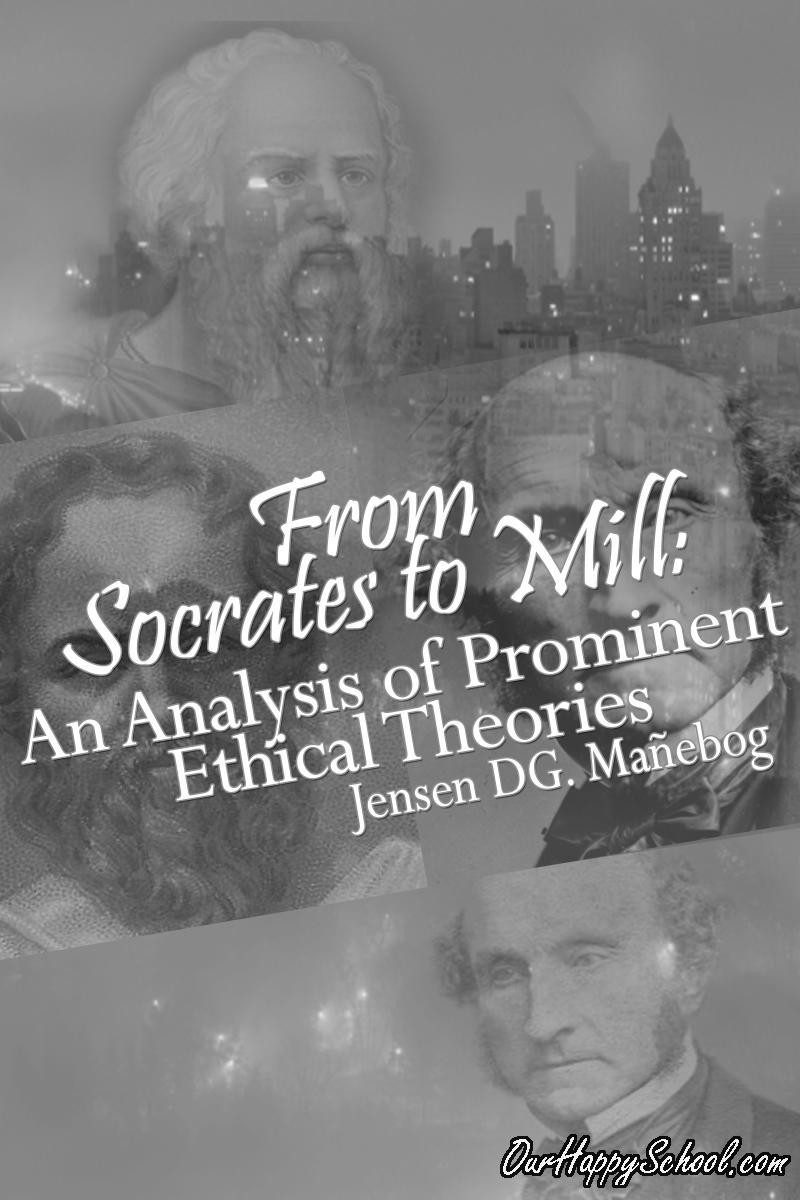 I. SPECIFIC OBJECTIVES:
I. SPECIFIC OBJECTIVES:
To give guidelines on how to choose a moral theory to follow; to enumerate some facts about morality; to identify some characteristics of a good moral theory
II. TOPICS/SUBJECT MATTER:
LESSON 2: GUIDELINES in CHOOSING a GOOD MORAL THEORY
The (6) Features of morality; The (7) Characteristics of a good moral theory
III. READING/S:
site: www.OurHappySchool.com (the article can be found by searching its title through the site’s own search engine)
IV. SUGGESTED ACTIVITIES:
A. Review of the last topic; Discussion of the prescribed reading (“What moral theory…”)
B. Assignment for next topic: Read in the site the reading for Lesson 3; In the comment section below the lecture, state why the lecture is important (2-3 sentences; to be checked by the Prof./Asst. Monitor); Bring a printed copy of the lecture in class.
V. EVALUATION: (Professor’s discretion)
WEEK 3-4
I. SPECIFIC OBJECTIVES:
To enumerate the secularists’ various explanations on undeniable facts about morality; to identify the flaws of secularists’ explanations; to comparatively assess the theists’ explanation on moral obligation’s binding force
II. TOPICS/SUBJECT MATTER:
LESSON 3: ANALYSIS OF SECULARISTS’ EXPLANATIONS ON SOME ETHICAL FACTS
1. ‘Sense of moral obligation is just the effect of social conditioning’; 2. Moral Law as Herd instinct; 3. Moral Law is just a Social convention; 4. “What men actually do”; 5. “The behavior that happens to be useful or that pays”; The theists’ explanation on moral obligation’s binding force
III. READING/S:
site: www.OurHappySchool.com (the article can be found by searching its title through the site’s own search engine)
IV. SUGGESTED ACTIVITIES:
A. Recap of the last topic; Discussion of the prescribed reading (“Secularists’ explanations…”)
B. Assignment for next topic: Read in the site the reading for next lesson; In the comment section below the lecture, answer Guide Question #2 (2-3 sentences; to be checked by the Prof./Asst. Monitor); Bring a printed copy of the lecture in class.
V. EVALUATION:(Professor’s discretion)
WEEK 5-6
I. SPECIFIC OBJECTIVES:
To define (cultural) relativism in Ethics; to enumerate the consequences of taking Cultural Relativism seriously; to identify the flaws of the theory; to identify what one can learn from the theory; to name a culture-neutral standard of right and wrong
II. TOPICS/SUBJECT MATTER:
LESSON 4: THE CULTURAL RELATIVISM IN ETHICS
The Cultural Differences Argument; The Consequences of Taking Cultural Relativism Seriously; Why There is Less Disagreement in Ethics Than It Seems; How All Cultures Have Some Values in Common; What Can Be Learned from Cultural Relativism; A Culture-Neutral Standard of Right and Wrong; Why Thoughtful People May Be Reluctant to Criticize Other Cultures; Judging a Cultural Practice to Be Undesirable
III. READING/S:
site: www.OurHappySchool.com (the article can be found by searching its title through the site’s own search engine)
IV. ACTIVITIES:
A. Recap of the last topic; Discussion of the prescribed reading (“Cultural Relativism …”)
B. Assignment for next topic: Read in the site the reading for next lesson; In the comment section below the lecture, answer Guide Question #3 (2-3 sentences; to be checked by the Prof./Asst. Monitor); Bring a printed copy of the lecture in class.
V. EVALUATION: (Professor’s discretion)
WEEK 7-8

I. SPECIFIC OBJECTIVES:
To define Subjectivism & Emotivism in Ethics; to enumerate the consequences of taking Subjectivism seriously; to identify the importance of reason in Ethics; to name some ‘moral facts’ & ‘proofs’ in Ethics
II. TOPICS/SUBJECT MATTER:
LESSON 5: THE SUBJECTIVISM IN ETHICS
Simple Subjectivism; Emotivism; Emotivism, Reason, and “Moral Facts”; The importance of reason in Ethics; Proofs in Ethics
III. READING/S:
site: www.OurHappySchool.com (the article can be found by searching its title through the site’s own search engine)
IV. ACTIVITIES:
A. Discussion of the prescribed reading (“Subjectivism …”)
B. Review for Midterm Exam
C. Assignment for next topic: Read in the site the reading for next Lesson; In the comment section below the lecture, answer any of the Guide Questions (2-3 sentences; to be checked by the Prof./Asst. Monitor); Bring a printed copy of the lecture in class.
V. EVALUATION: (Professor’s discretion)
WEEK 9: MIDTERM EXAMINATION
WEEK 10
I. SPECIFIC OBJECTIVES:
To enumerate the various moral foundations put forward by non-theists; to identify the flaws and disadvantages in explaining morality using these moral foundations
II. TOPICS/SUBJECT MATTER:
LESSON 6: ANALYSIS OF NON-THEISTS’ MORAL FOUNDATIONS
1. Convention, human experience, human need & human reason; 2. Utilitarianism; 3. Deontological Theory; 4. Culture: Morals are mores; 5. Right is Moderation; 6. Right is what brings pleasure; 7. Right is what is desirable for its own sake; 8. Right is indefinable
III. READING/S:
site: www.OurHappySchool.com (the article can be found by searching its title through the site’s own search engine)
IV. ACTIVITIES:
A. Recap of the previous lessons; Discussion of the prescribed reading (“Non-theists’ moral foundations…”)
B. Assignment for next topic: Read in the site the reading for next Lesson; In the comment section below the lecture, state why the lecture is important (2-3 sentences); Bring a printed copy of the lecture in class
V. EVALUATION:(Professor’s discretion)
WEEK 11
I. SPECIFIC OBJECTIVES:
To prove the superficiality of the alleged richness’ of life in atheistic-naturalistic-materialistic worldview; to identify the ironies and inconsistencies in upholding this worldview; to prove its inability to account for moral obligation; to show its inability to explain the case of compassionate tear and virtues like self-sacrifice
II. TOPICS/SUBJECT MATTER:
LESSON 7: ANALYSIS OF ATHEISTIC-NATURALISTIC-MATERIALISTIC WORLDVIEW AS AN ETHICAL FOUNDATION
The superficiality of the alleged richness’ of life in atheistic-naturalistic-materialistic worldview; The ironies and inconsistencies in upholding this worldview; The ‘leaps of faith’ in atheism; Inability to truly account for morality; The case of ‘compassionate tear’ and self-sacrifice in atheism
III. READING/S:
site: www.OurHappySchool.com (the article can be found by searching its title through the site’s own search engine)
IV. ACTIVITIES:
A. Recap of the previous lessons; Discussion of the prescribed reading (“Atheistic-naturalistic-materialistic…”)
B. Assignment for next topic: Read in the site the reading for the next Lesson; In the comment section below the lecture, answer Guide Question #3 (2-3 sentences; to be checked by the Prof./Asst. Monitor); Bring a printed copy of the lecture in class.
V. EVALUATION: (Professor’s discretion)
WEEK 12
 I. SPECIFIC OBJECTIVES:
I. SPECIFIC OBJECTIVES:
To prove the Darwinist-evolutionist worldview’s inability to satisfactorily explain the origin of human life; to identify the flaws of Evolution’s implicit reasoning; to prove Darwinism’s inability to account for morality
II. TOPICS/SUBJECT MATTER:
LESSON 8: ANALYSIS OF DARWINIST-EVOLUTIONIST WORLDVIEW AS A BASIS IN MORALITY
Inability to explain the origin of life; The flaws of Evolution’s implicit reasoning; ‘Against common sense’; ‘Darwinism can not account for Morality’
III. READING/S:
site: www.OurHappySchool.com (the article can be found by searching its title through the site’s own search engine)
IV. ACTIVITIES:
A. Discussion of the prescribed reading (“Darwinist-evolutionist…”)
B. Assignment for next topic: Read in the site the reading for the next Lesson; In the comment section below the lecture, answer Guide Question #2 (2-3 sentences; to be checked by the Prof./Asst. Monitor); Bring a printed copy of the lecture in class.
V. EVALUATION: (Professor’s discretion)
WEEK 13
 I. SPECIFIC OBJECTIVES:
I. SPECIFIC OBJECTIVES:
To prove that science does not automatically do service to atheism; to prove that what is moral cannot be determined by science
II. TOPICS/SUBJECT MATTER:
LESSON 9: SCIENCE, ATHEISM, and MORALITY
Science does not necessarily imply atheism;‘Morality is outside the realm of science’
III. READING/S:
site: www.OurHappySchool.com (the article can be found by searching its title through the site’s own search engine)
IV. ACTIVITIES:
A. Discussion of the prescribed reading
B. Assignment for next topic: Read in the site the reading for the next Lesson; In the comment section below the lecture, answer Guide Question #1 (2-3 sentences; to be checked by the Prof./Asst. Monitor); Bring a printed copy of the lecture in class.
V. EVALUATION: (Professor’s discretion)
WEEK 14
I. SPECIFIC OBJECTIVES:
To identify the advantages in upholding theistic ethics; to prove its ability to justify moral values and accountability; to show that the cut-flower thesis makes sense
II. TOPICS/SUBJECT MATTER:
LESSON 10: THE ADVANTAGES OF THE THEISTIC ETHICS
Ability to justify moral values; Accountability in God-based morality (vs. Accountability in Naturalism); The “cut-flower thesis
III. READING/S:
site: www.OurHappySchool.com (the article can be found by searching its title through the site’s own search engine)
IV. ACTIVITIES:
A. Recap of the previous lessons; Discussion of the prescribed reading (“The Theistic Ethics …”)
B. Assignment for next topic: Read the lecture for the next Lesson; Write aReflection Paper concerning the lecture (short bond paper, double-space, TNR, font 12); Bring a copy of the lecture in class.
V. EVALUATION: (Professor’s discretion)
WEEK 15
I. SPECIFIC OBJECTIVE/S:
To have knowledge on biblical teachings on what man is—his reason for being, what he is, how he came to be, what he is for, what is in store for him in the future, etc.
II. TOPICS/SUBJECT MATTER:
LESSON 11: THE BIBLICAL TEACHINGS ON THE NATURE OF MAN
35 questions and answers on what man is according to the Holy Scriptures
III. READING/S:
site: www.OurHappySchool.com (the article can be found by searching its title through the site’s own search engine)
IV. ACTIVITIES:
A. Discussion of the prescribed reading (“What is man…”) and of students’Reflection Papers
B. Assignment for next topic: Read the lecture for the next Lesson; Write aReaction Paper concerning the lecture (short bond paper, double-space, TNR, font 12); Bring a copy of the lecture in class.
V. EVALUATION: (Professor’s discretion)
WEEK 16
I. SPECIFIC OBJECTIVES:
To understand the value of helping and being concerned with each other
II. TOPICS/SUBJECT MATTER:
LESSON 12: THE VALUE OF BEING CONCERNED WITH EACH OTHER
The disadvantages of working solo
The value of brotherhood
The need for spiritual support from each other
Ways to show our brotherly love towards one another
III. READING/S:
site: www.OurHappySchool.com (the article can be found by searching its title through the site’s own search engine)
IV. ACTIVITIES:
A. Discussion of the prescribed reading (“Am I my…”) and of students’ Reaction Papers
B. Assignment for next topic: Read in the site the reading for the next Lesson; In a yellow paper, enumerate the things which God expects of the youth in His nation; Bring a printed copy of the lecture in class.
V. EVALUATION: (Professor’s discretion)
WEEK 17
I. SPECIFIC OBJECTIVES:
To identify the various teachings of God for the youth as recorded in the Bible
II. TOPICS/SUBJECT MATTER:
LESSON 13: SOME TEACHINGS FOR THE YOUTH
Some admonitions, advices, counsels, and instructions for the youth
III. READING/S:
IV. ACTIVITIES:
A. Discussion of the prescribed reading and assignments
B. Assignment (to be submitted on the examination day): Attend a Bible Study. Make a Reaction Paper on the topic discussed in the Bible Study (short bond paper, double-space, TNR, font 12). Ask the one who officiated the Bible Study to read, comment on, and sign your reaction paper.
V. EVALUATION: (Professor’s discretion)
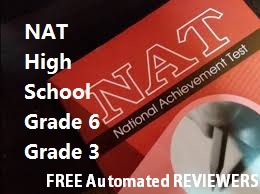
The following are Online Automated ELearning Reviewers for National Achievement Test - High School, Grade 6 & Grade 3 which were made to help students prepare for NAT in the Philippines.
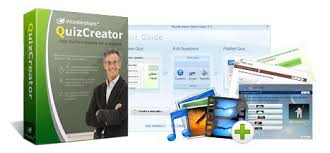 LIST of NAT-HIGH SCHOOL REVIEWERS
LIST of NAT-HIGH SCHOOL REVIEWERS
List of NAT-GRADE 6 REVIEWERS
List of NAT-GRADE 3 REVIEWERS
ADVANCED REVIEWERS
The following are relatively 'harder' reviewers which you may use in preparing hard for NAT (especially for NAT High School)
LIST of NAT-HIGH SCHOOL REVIEWERS
* More to come
List of NAT-GRADE 6 REVIEWERS
* More to come
List of NAT-GRADE 3 REVIEWERS
* More to come
UPCAT, ACET, DLSUCET, USTET, and other College Entrance Exam REVIEWERS
Share this page to your friends by clicking the SHARE button below.
You may also want to leave a remark using the comment section below.
FREE UPCAT, ACET, DLSUCET, USTET and other College Entrance Examinations
Tag: OurHappySchool.com Online Automated ELearning Reviewers for National Achievement Test - High School, Grade 6 & Grade 3; Free NAT Reviewers (Online e-Learning Automated Format); OurHappySchool.com Featured Articles, Lectures, and e-Learning Materials





 I. SPECIFIC OBJECTIVES:
I. SPECIFIC OBJECTIVES: